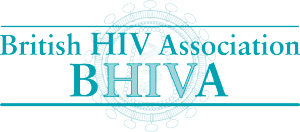
 This from the British HIV Association is of relevance to our last few posts.
This from the British HIV Association is of relevance to our last few posts.
It’s been more than 12 months since our 2013 member survey hit the headlines on World AIDS Day, generating broadcast news coverage on BBC bulletins throughout the day, and appearing in the Guardian, Pulse and the HSJ.
The survey highlighted challenges to HIV and GUM in the chaotic aftermath of the Health and Social Care Act, due to changes in commissioning and the tendering of service contracts, in some cases leading to separation of HIV and GUM provision.
In October and November this year, more than 100 BHIVA members completed a follow-up to the 2013 survey, and the findings suggested that your earlier concerns were justified.
As well as furthering our understanding of stresses on the HIV treatment and care system, the survey also provided crucial evidence for our response to the All Party Parliamentary Group Inquiry into Standards in Sexual and Reproductive Health*.
In our response, we noted several findings from the survey, which corroborate widespread predictions that the Health and Social Care Act could lead to fragmentation of sexual health and HIV services, an effect seen most acutely where the sexual health component of integrated services had been tendered out.
Of the 32 respondents whose GUM service had been tendered out, more than one in three reported that the overall quality of care offered to people living with HIV in their area had deteriorated or deteriorated markedly due to changes to NHS commissioning. More than seven out of ten expected the quality of treatment and care to decline further in future, and one in five reported a decline in, or complete cessation of, research and training.
Further findings showed that more than 8-in-10 respondents had reported their concerns about the impact of the Act to commissioners, clinical colleagues or the media.
While we realise the limitations of this research – particularly the relatively small sample size and potential for respondent bias – the surveys taken together give little cause for optimism about the current and future status of HIV and GUM service provision within the new commissioning landscape.
Perhaps even more revealing than the quantitative data were some of the examples provided by members of the effects of service disaggregation or de stabilisation, including:
“It is likely that the GU service will go out to tender next year. If this is won by a different provider and the service is split this would have a major impact on the quality of care and would increase the cost of HIV care significantly.”
“The GUM service has been tendered separately and the contract just awarded to a provider with no experience of HIV. The HIV service is now unsustainable and likely to close in an area where patients will find it difficult to travel for care.”
“We have been unable to move forward with the centralisation and improvements in of our HIV service as a result of tendering of the GUM service.”
Such examples are particularly worrying in the light of further increases in new infections reported by the PHE, and the incredible prevention opportunities offered by advances in pre-exposure prophylaxis (PrEP) and treatment as prevention (TasP).
We will continue to monitor our members on these and other issues of concern and welcome your participation in future surveys.
*BHIVA’s full response to the Inquiry can be found on the website <http://www.bhiva.org/documents/Publications/consultations/141107APPGSRH.pdf>.
